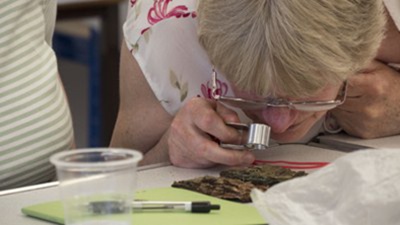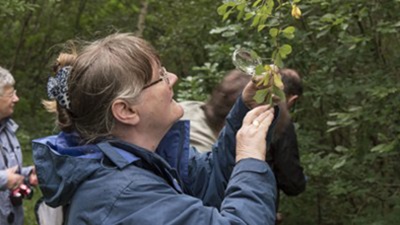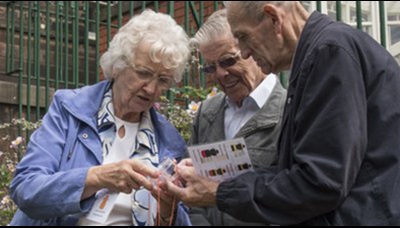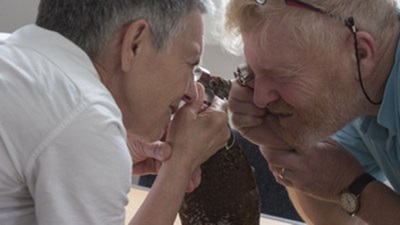Research Centre for Museums and Galleries (RCMG)
Encountering the Unexpected
Living and ageing well: people, nature and natural heritage collections

Across the world, populations are ageing, turning our conception of society around. Rather than celebrating that more and more people are living longer, healthier lives, the dominant narrative is one of a demographic 'timebomb' and a disaster for governments and society as health and social care budgets rise. Framed by a medical model that focuses on bodily and mental decline, ageism (the negative perception of ageing and older people) is a pressing social justice issue, limiting opportunities for older people and shaping perceptions of how they can contribute to society.

Museums are not immune from the damaging effects of the medical model. Whilst older people are an established audience for museums and galleries, there appear to be a number of (unconscious) assumptions that museums make about older people that shape the activities available to them. For example, when working with older people, the default position is for museums to use their social history collections as part of a reminiscence session, or there is the tendency to focus on their health conditions where the emphasis is making them well. Whilst these activities are undoubtedly good and older people will get lots from them, who ultimately benefits?
We wanted to challenge museums to think differently about older people, to support them to live and age well. How can museums use their collections to (in the words of Claire Keatinge, active ageing specialist) to inspire, include and bring joy to older people, to enrich their lives?

Funded by the Esme Fairbairn Collections Fund, run by the Museums Association, Encountering the Unexpected was a two-year action research project that ran from March 2016 to April 2018. The project enabled six museums working in partnership with RCMG and strategic partners specialising in ageing, the environment and nature connectedness, to take part in a series of Exchange events and develop Museum Experiments that would challenge museum practice and thinking, and offer older people fulfilling, and meaningful, engagement experiences. Visit the project website for more information.
Earlier research (Mind, Body, Spirit) revealed that using social history collections often meant that practitioners tended to slip into comfortable ways of working around memory and reminiscence with older people. Encountering the Unexpected deliberately set out to work with natural heritage collections to avoid the association with memory and to explore the considerable potential of these vast collections to actively engage older people, stimulate their curiosity and encourage a stake in the present and future.

Encountering the Unexpected involved 100 older people taking part in a diverse range of experiments, from one off activities and events to workshops spread across a number of weeks. Each experiment was an opportunity for museums to challenge default approaches to working with older people, to experiment and take risks, framed by a set of values around living and ageing well, and nature connectedness. Curators and engagement staff worked with organisations including Housing Associations and community groups to reach a broad range of older people, using their natural heritage collections in new and imaginative ways, to 'encounter the unexpected.'

The process involved a shift in museums' thinking and use of natural heritage collections, which was sometimes challenging for museum staff. However, evidence captured throughout the experimental process demonstrated that museums CAN make a difference to individual lives through nurturing living and ageing well, going some way towards challenging negative and reductive perceptions, and expectations of, older people.
Visit the project website to find out more and read about the development of the Unexpected Encounters Framework.
Read the publication Unexpected Encounters (2018) (PDF, 9.76MB)
Find out more about the North West Natural History Museums Partnership, 7 Million Wonders (2015).